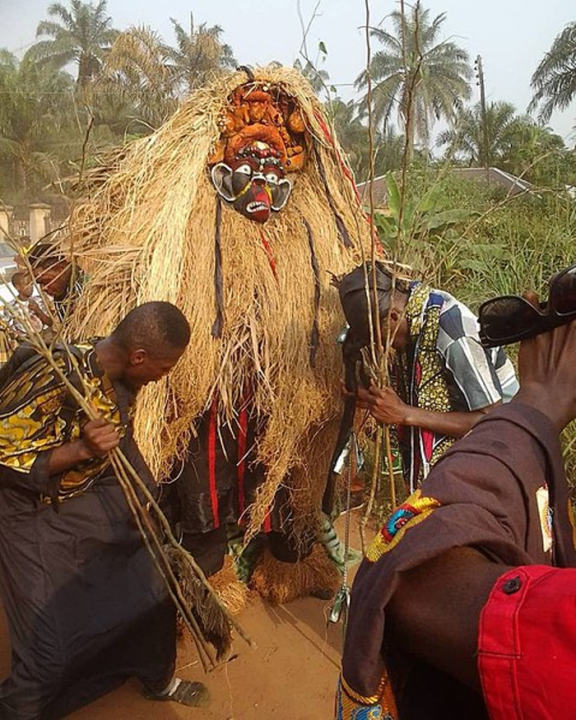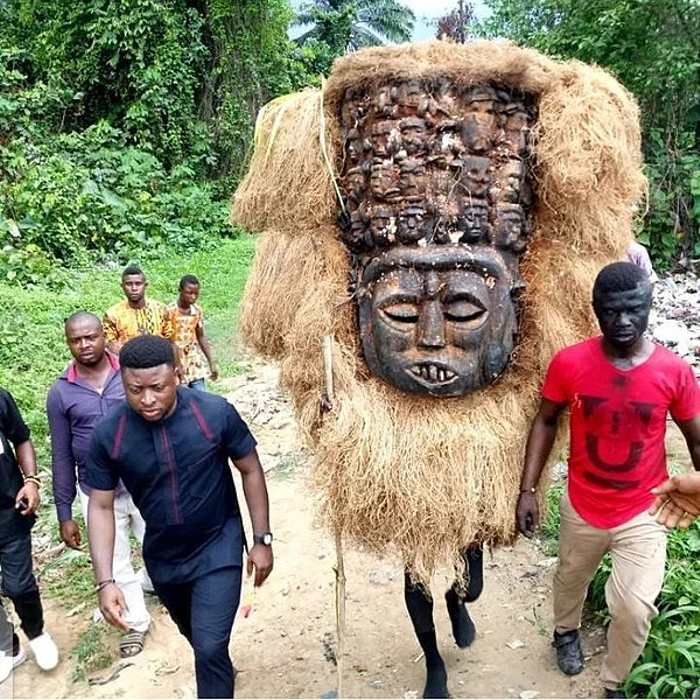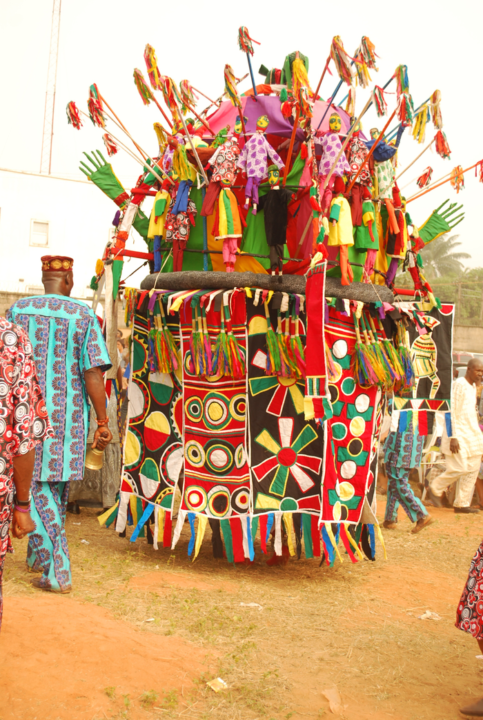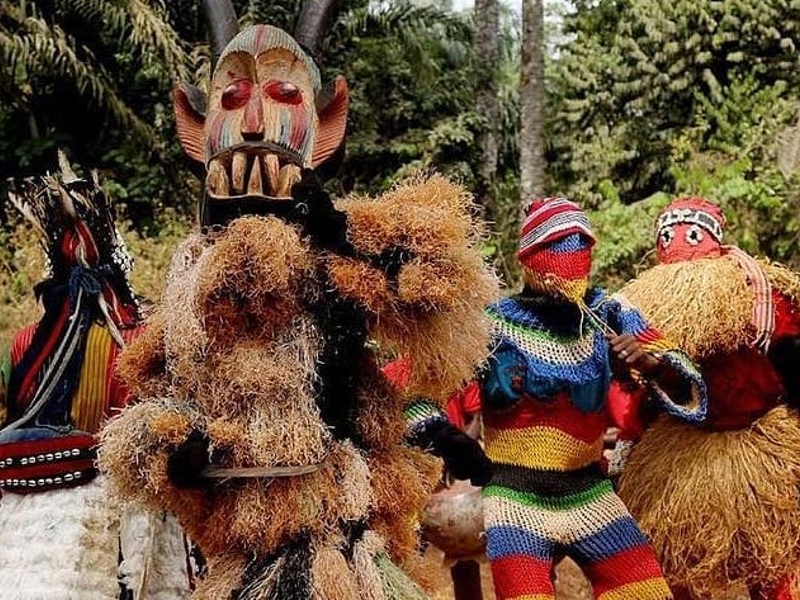Image: Igbo Masquerade. Source: Wikimedia Commons
Masquerade which is the English word Mmanwu, Ekpe, or Egwu-ikwu-ota depending on the Igbo dialect in being spoken, has remained part of the etymological history of the Igbo people of South Eastern Nigeria. Among one of the largest ethnic groups in Nigeria, masquerades were viewed in the past to be an embodiment of ancestral spirits and were treated sacredly.
It was strongly believed amongst the people that these masquerades who appeared only on special occasions played a crucial role in connecting the living with the spirit world. Believing to possess spiritual powers, they acted as intermediaries between their ancestors and their kin thereby bringing good fortune, protection, and blessings to the community.

Source: Wikimedia Commons
Masquerades, who are culturally viewed as spirits can only be approached by men both young and old who have been initiated into the circle. When approached, the masquerade utters a word that is familiar to those within the circle and a reply is expected by whomever approaches. The uninitiated men, women, and children would remain in safe spots, away from these masquerades where they watch the entertaining display.
The resplendent costumes worn by the masquerades make them an attractive sight to every onlooker. Their various gesticulations and rhythmic movement creates an inspiring moment that elicits applause from all.
Culturally, masquerades played an important role in preserving cultural heritage. They are perceived as symbols of the Igbo culture and traditions. Alluded to hold a historical trace to Igbo ancestors, their dances and performances showcase a history that has been passed down from generation to generation. Through their performances, the people can connect with their roots, learn about their history, and pass on their traditions to the next generation.

Source: Wikimedia Commons
Masquerades are believed to have the cleansing power which helps ward off evil spirits and bad energy from the community. energy. In some communities, dance rituals are performed by these masquerades before the commencement of any event or festivities. In places like Onitsha in Anambra State, during the celebration of the Ofala festival, the King is welcomed by the grandest of all masquerades popularly known as the Ijele Masquerade.
Standing as high as 10-12 feet tall, the Ijele masquerade is the chief of all masquerades. Its appearance is a rarity and only happens at the event of the traditional ruler, chief, or important personality. Its appearance commands respect, and attention and also symbolizes good fortune for the people.

Image: Ijele Masquerade in Anambra State. Source: Wikimedia Commons
Over the years, several Igbo communities have leveraged the value of masquerades as an avenue for economic development. Every festival attracts visitors from all over the country and in the diaspora. Bringing economic opportunities, local businesses capitalize on the festivities to make quick sales, while craftsmen create handmade products as well as other forms of memorabilia.
It also allows communities to hold kindred meetings popularly referred to as Umunna meetings to share ideas that would progressively benefit the community, settle disputes and foster stronger bonds amongst kin.
Masquerades are essentially a part of Igbo culture, their role as a cultural, ceremonial, social, and economic force in addition to being a source of entertainment is the basis for why the Igbo people view them as an essential component of the customs and tradition of the land.

Okechukwu Nzeribe works with the Onitsha Chamber of Commerce, in Anambra State, Nigeria, and loves unveiling the richness of African cultures.
nextquestservices@gmail.com





